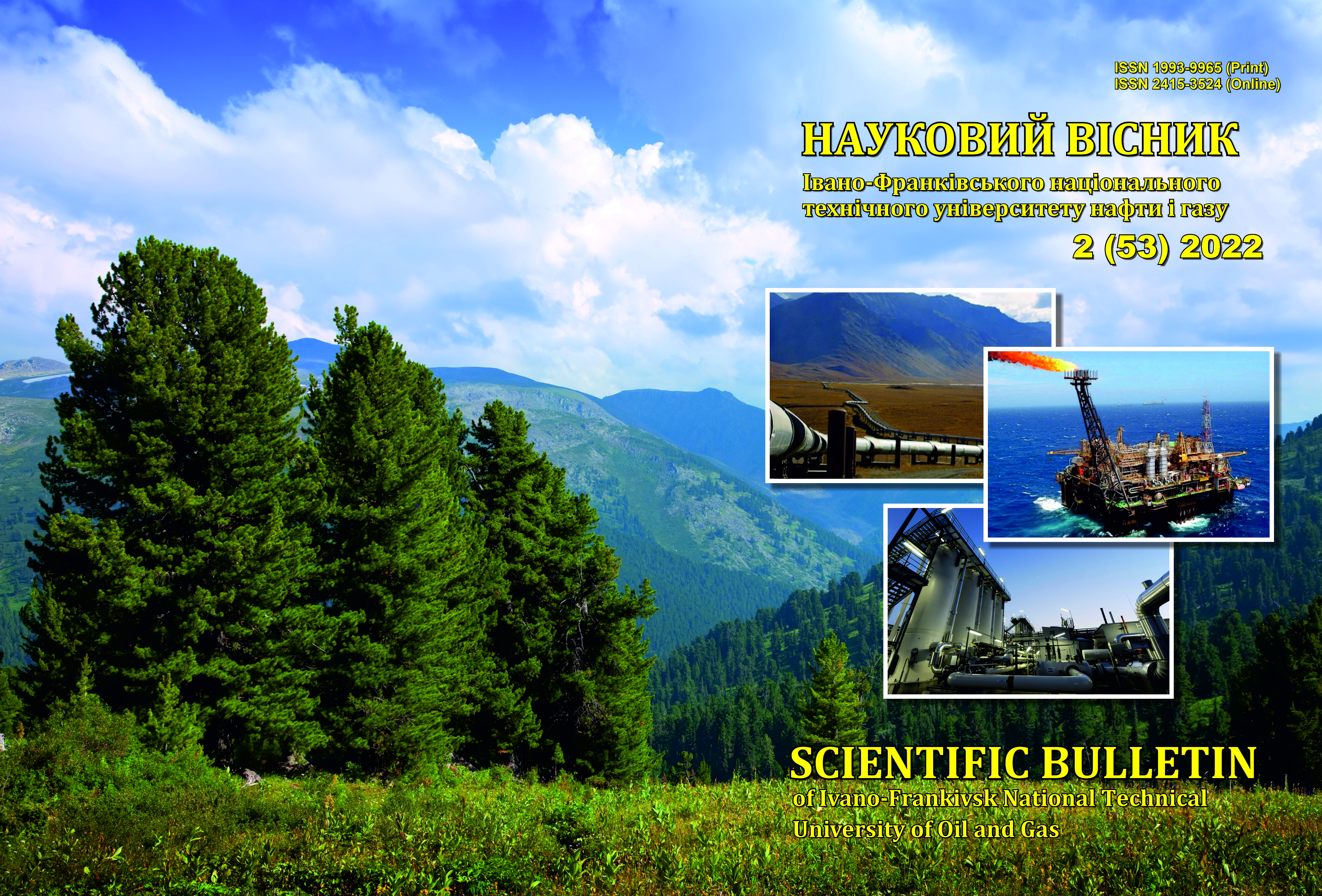Analysis of technological inheritability of product quality parameters by the criterion of material homogeneity
DOI:
https://doi.org/10.31471/1993-9965-2022-2(53)-7-16Keywords:
Industry4.0, functionally oriented technologies, technological damage, material homogeneity, Weibull homogeneity coefficientAbstract
Currently, numerous studies and publications deal with the development of technological finishing processes in the design of effective technologies for processing product parts at the stage of their formation in the life cycle. At the same time, the peculiarities of the formation of inheritance properties of the material of parts using rational criteria for evaluating the degree of material degradation, both at the stage of formation and in the further operation of a technological production facility, have not been sufficiently studied. In design and technological work, it is difficult to predict the degree of influence of all technological parameters and take into account in accordance with the principles of technological inheritance of the properties of machine parts. As a result of the manifestation of structural and structural stress concentrators in the manufacture of machine parts, technological defects arise and form. Technological defects under unfavorable operating conditions become damage to the surface layers of рroducts, which leads to their further destruction and failure of the machine with disastrous consequences for the environment. The article refers to the difficulties in ensuring the performance and reliability of machine parts when implementing the principle of function-oriented design of technological processes. It is proposed to use material homogeneity as a parameter for the analysis of technological inheritance of surface properties of products after their processing, which integrally determines the state of the material by the value of the established hardness. The criterion of material homogeneity is presented as a set of indicators for the analysis of technological inheritance of quality parameters of parts during their manufacture by cutting or plastic deformation and control. The proposed methodology was tested during the manufacture of a shaft for the drive drum of a conveyor belt TS 1850. The regularities of formation of quality parameters of products and evaluation of the degree of degradation of their material during machining of functional surfaces of engineering objects were established.
Downloads
References
Kusyi Ya.M. Naukovo-prykladni osnovy tekhnolohichnoho uspadkuvannia parametriv yakosti dlia zabezpechennia ekspluatatsiiny khkharakterystyk vyrobiv: dys. … doktoratekhn. nauk: 05.02.08 / Kusyi Yaroslav Markiianovych. Lviv, 2021 . 432 s. [in Ukrainian]
Yoshimura М. System Design Optimization for Product Manufacturing. Concurrent Engineering. 2007, Vol. 15 (4). P. 329-343. https://doi.org/10.1177/1063293x07083087
Shatskyi I.P., Perepichka V.V., Ropyak L.Y. On the influence of facing on strength of solids with surface defects. Metallofizika i Noveishie Tekhnologii. 2020, Vol. 42 (1). P. 69-76. https://doi.org/doi: 10.15407/mfint.42.01.0069
Stupnytskyy V., Hrytsay I. Comprehensive analysis of the product’s operational properties formation considering machining technology. Archive of mechanical engineering. 2020, Vol. 67 (2). P. 149-167. https://doi.org/10.24425/ame.2020.131688
Stupnytskyy V., Hrytsay I.Computer-aided conception for planning and researching of the functional-oriented manufacturing process. In: Metal Advanced Manufacturing Processes. InterPartner 2019. Lecture Notes in Mechanical Engineering. Springer, Cham. 2020. Р. 309–320. https://doi.org/10.1007/978-3-030-40724-7_32
Kusyi Ya.M, Kuk A.M. Investigation of the technological damageability of casting satthestage of design and technological preparation of the machine Life Cycle. Journal of Physics: Conference Series. 2020, Vol. 1426. https://doi.org/10.1088/1742-6596/1426/1/012034
Kusyi Ya., Stupnytskyy V. Optimization of the Technological Process Basedon Analysis of Technological Damageability of Casting. In: Ivanov Ivanov, V., Trojanowska, J., Pavlenko, I., Zajac, J., Peraković, D. (eds) Advances in Design, Simulation and Manufacturing III. DSMIE 2020. Lecture Notes in Mechanical Engineering. Springer, Cham. 2020. P. 276-284. https://doi.org/10.1007/978-3-030-50794-7_27
Stupnytskyy V. Features of Functionally-Oriented Engineering Technologies in Concurrent Environment. International Journal of Engineering Research & Technology (IJERT).2013, Vol 2 (9). P. 1181-1186.
la Monaca A., Murray J.W., Liao Z., Speidel A., Robles-Linares J.A., Axinte .A., Hardy M.C., Clare A.T. Surface integrity in metal machining - Part II: Functional performance International Journal of Machine Tools and Manufacture. 2021, Vol. 164. https://doi.org/10.1016/j.ijmachtools.2021.103718
Kusyi Ya.M., Stupnytskyy V.V., Kuk A.M., Topilnytskyy V.G. Development of the fundamental diagram of the formation and transformation of the products properties during their manufacturing. Journal of Physics: Conference Series. 2021, Vol. 1781(1). 012027. https://doi.org/10.1088/1742-6596/1781/1/012027
Kusyi Y., Onysko O., Kuk A., Solohub B., Kopei V. Development of the Technique for Designing Rational Routes of the Functional Surfaces Processing of Products. Lecture Notes in Networks and Systems. 2022, Vol. 472. P. 135-143. https://doi.org/10.1007/978-3-031-05230-9_16
Muzyka N.R., Shvets V.P., Boiko A. V. Procedure and Instruments for the Material Damage Assessment by the LM-Hardness Method on the In-Service Scratching of Structure Element Surfaces. Strength of Materials. 2020, Vol. 52. P. 432-439. https://doi.org/10.1007/s11223-020-00195-6
Maslo O.M. Poshkodzhuvanist i hranychnyi stan metalevykh materialiv v umovakh plastychnoho deformuvannia pry riznykh vydakh mekhanichnoho navantazhennia: dys. … kandy-data tekhn. nauk: 01.02.04 / Maslo Oleksandr Mykolaiovych. K., 2021. 227 p. [in Ukrainian]
Pisarenko G.S., Lebedev A.A. Deformirovanie i prochnost materialov pri slozhnom napryazhennom sostoyanii. K.: Nauk. dumka, 1976. 416 p. [in Russian]
Kachanov L.M. Introduction to continuum damage mechanics. Dordrecht/Boston: Martinus Nijhoff Publishers, 1986. 135 p.
Murakami S. Continuum Damage Mechanics – A Continuum Mechanics Approach to the Analysis of Damageand Fracture. Dordrecht /Heidelberg/London/NewYork: Springer, 2012. 402 p. https://doi.org/10.1007/978-94-007-2666-6
Downloads
Published
How to Cite
Issue
Section
License
Авторські права....


1.png)

















